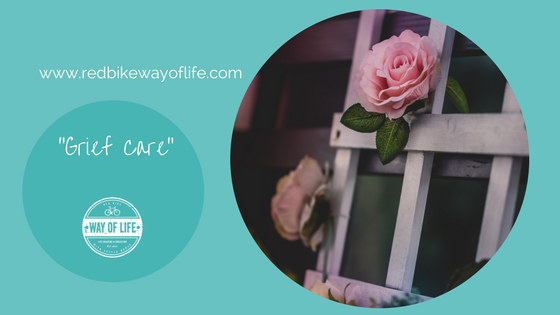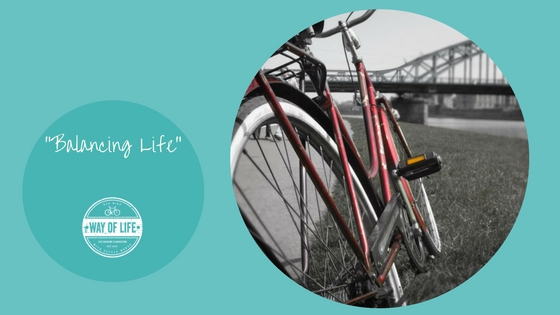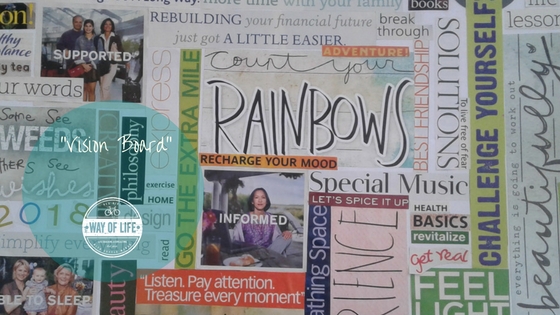
by Shayla Morag | Feb 05, 2018 | Handy Tips, The Red Bike Way, Travelling
For one of my Mom’s birthdays, we both flew to Vancouver (coast-to-coast) to celebrate with family and friends. WestJet, for example, has a One Person One Fare Program. We applied and were successful so I was my Mom’s personal attendant to provide care (i.e help with meals, medication) and my fare was covered aside from a small fee on all future trips.
The trip had moments that were quite confusing especially when we stayed in a new place and met new people. However, for the most part by maintaining our regular daily routine and being by my Mom’s side… all went really smoothly. Before going (due to the time change), we attempted to shift our sleeping habits so that the adjustment would be easier to manage. Marking off the days on a calendar was also a great count down and way to visually capture the current day. ?✈?

by Shayla Morag | Feb 03, 2018 | Grief, Self Care, The Red Bike Way
During the healing journey, it is often recommended to find something new to learn or experience to help with the process of acceptance. There are 7 steps to mastering a new skill. If you learn the right skills, you can be wealthy, play a musical instrument, have a great new relationship, or juggle five balls. Mastering a new skill is a skill in itself. There are several ideas to keep in mind as you learn a new skill. Setting goals, getting expert coaching, and having reasonable expectations are all important.
Master a new skill quickly and efficiently with these strategies:
1. Choose an appropriate skill. You don’t have time to learn everything, so pick something meaningful. It can either be a skill that will greatly aid you in some way or a skill that you find fascinating. If the new skill doesn’t fit into one of these two categories, you’re unlikely to stay motivated enough to master it.
2. Set both long-term and short-term goals. Your long-term goal is mastering your chosen skill. Just how good do you want to be? The short-term goal is no more than 12 weeks in the future. At the end of this short time, you set a goal for how far you want to be after the next few months. This will keep you focused on making continuous progress.
3. Have reasonable expectations for your progress. Your ultimate progress is virtually unlimited. However, there is a limit to how much you can accomplish in 12 weeks. Realize that you’re unique and your rate of progress could be faster or slower than average.
4. Breakdown the skill into its components. For example, playing the piano isn’t just about hitting the correct keys in the correct order. It has several skills interwoven into a larger skill. To be a good pianist, you must be able to do several things well:
- Sight-reading
- Compensating for the fact that some fingers are much stronger than others
- Understanding music theory
- Scales
- Arpeggios
- Dynamics
5. If appropriate, get a coach. You can learn to play piano by yourself, but you’ll have a hard time finding a high-level pianist that didn’t receive expert instruction. At the very least, find materials created by an expert. These may be in the form of books, videos, webinars, or websites. Even periodic meetings with a coach can keep you on the right track
6. Focus on what’s most important. The old adage that 20% of your efforts will account for 80% of your results is true. Determine which activities and skills will yield the greatest results. Most people focus on the activities that are the easiest or the most interesting. Avoid being that person. Your progress will be faster if you focus on the most important tasks.
This is often referred to as deliberate practice. Banging on the piano keys while you catch the end of Rocky V isn’t the same as focusing all of your attention on learning how to play a C with both hands.
7. Get started quickly. Avoid falling into the trap of gathering an excessive amount of information before you get started. The person that masters a skill is the one that spend his time wisely. Watching videos of someone playing the piano isn’t a substitute for doing it yourself. Dive into the practical part of mastery quickly.
You’ll be surprised by how quickly you learn if you choose an appropriate skill, focus on the most effective tasks, and practice consistently. Choose a skill that will add value to your life and you’ll benefit from it forever. Learning a new skill can change your life and help you embrace grief.

by Shayla Morag | Feb 01, 2018 | Handy Tips, Self Care, The Red Bike Way
Everyone has good days and bad. When faced with a bad day, do everything you can to make the most of it. You can accomplish something worthwhile, no matter how bad of a day you’re experiencing. Here are 9 tips to survive a bad day and make the most of it:
1. Avoid behaviors that make a bad day even worse. Complaining, overeating, yelling at a coworker or loved one, or drinking are just a few ways to potentially make a bad day worse. Why throw gasoline on the fire? Keep your wits about you and hold on. Tomorrow is a new day. It might be your best day ever.
2. Maintain your perspective. Maybe your boss hates your report, but it beats the heck out of living under a bridge. No matter how bad your day is, it could be a lot worse. And many are faced with far worse each and every day. Things will get better.
3. Meet with a friend for dinner. People love drama as long as it isn’t their own. Your friend would love to hear about your bad day over a delicious dinner. You can tell your story and unburden yourself, all while enjoying your favorite restaurant.
4. Remember that it’s just one day. You can handle one bad day. You’ve already successfully survived many in the past. Finish the day but look forward to tomorrow. Things can only get better, right?
5. Avoid making any important decisions. A bad day isn’t the best time to decide to quit your job, give up on your dream of law school, or end a relationship. All of those things can wait until your mood and circumstances have normalized. Again, avoid doing anything that can make your crummy day significantly worse.
6. Make plans that excite you. Decide to get away for the weekend or buy that new iPod you’ve been eyeing for the last few months. Give yourself something to look forward to in the near future
7. Learn a lesson. Is there anything you did to cause your bad day? Could your rough day have been prevented? Can you learn anything from this experience? A rough day isn’t so bad if you learned something useful from it. Make the best of it
8. Breathe. Unless you’re underwater, breathing is always a good idea to relieve tension and regain control of your emotions. Just breathe and get your work done. Completing everything that needs to be done is more challenging when everything seems to be going wrong, but you’ll feel more satisfied at the end of the day if it wasn’t a complete loss
9. Take a nap. Sometimes you can reset your day and your brain by taking a quick nap. Maybe you’ll see your situation in a new light. A nap also provides a needed break.
Deal with your bad days effectively. When you’re experiencing a bad day, focus on survival and completing the most important tasks. Most importantly, avoid using a bad day as an excuse to do something stupid or you might find that it can get worse. Follow these strategies and you’ll get through your rough days in the best ways possible.

by Shayla Morag | Jan 24, 2018 | Caregiving, The Red Bike Way
During the journey of caregiving, it’s very easy to lose balance: balance with work, family demands, and self care. I have found myself sometimes wobbly with keeping life in balance. It is always comforting to know that you are not alone when it comes to the struggle of maintaining a balanced life. Oprah is in agreement. “I’ve learned that you can’t have everything and do everything at the same time.”
Being a “giver” as a caregiver…
It is easy to get into this pattern. A caregiver is a “giver” by default but there are those of us who are a “giver” in every part of our lives. We give and give and at the end of the day we wonder why there is nothing left. Caregiver burnout is very common for “givers” who give too much. It is a delicate balance. Check out this link to become aware of the symptoms of burnout before it is too late.

by Shayla Morag | Jan 23, 2018 | Comfort, Grief, Handy Tips, Support, The Red Bike Way
Sadly I have had a few friends lose their beloved pets in recent months. The loss of a fur baby can be very traumatic. For many people, pets become members of the family. We have a little toy poodle named Beethoven who is very much apart of the family. Being there to listen and sending a sympathy e-card to a friend or a loved one when their pet passes away can offer care and comfort during a difficult time. Check out Your Dog Advisor site for thoughtful gift ideas.

by Shayla Morag | Jan 22, 2018 | Manifesting Life, The Red Bike Way
My annual tradition of creating my vision board is always a great way to kick-off a new year. I highly recommend this process. We can manifest and shape our lives. Lots of peace, love, & joy for 2018 everyone!!! ️??







